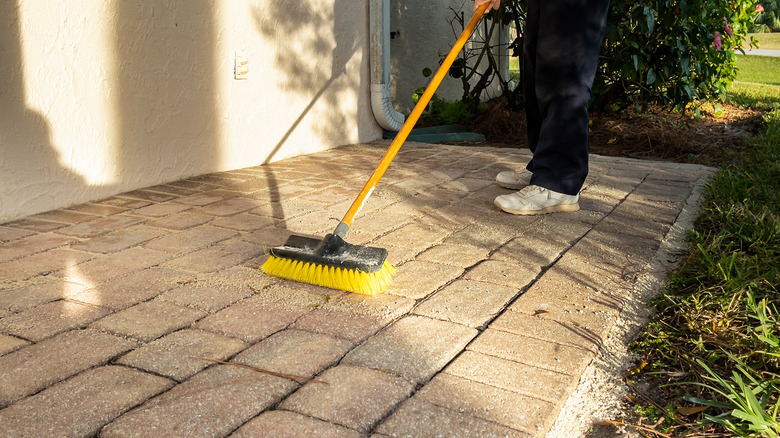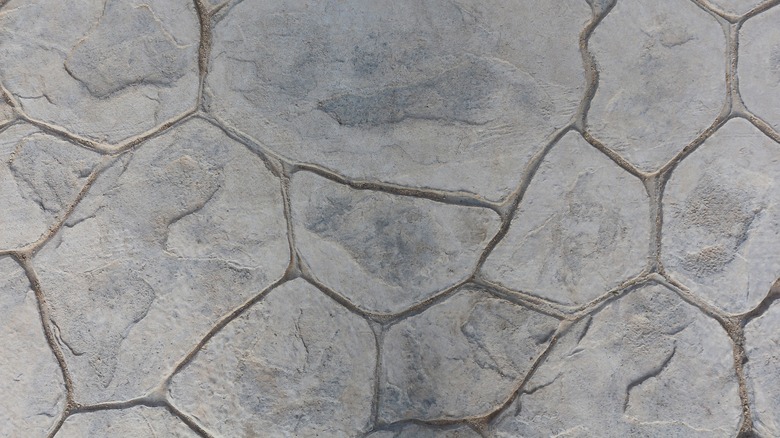Using Vinegar To Clean Your Patio Pavers Could Be A Huge Mistake
Vinegar is such a versatile cleaning tool that many of us fall into the trap of using it to clean anything and everything. That's because it's very effective — since it has about 5% acetic acid, it can break down stubborn stains like grease, dirt, and oil. It cuts through grime and can even act as a disinfectant for some bacteria and viruses. But the very thing that makes it a good cleaner is also the thing that might ruin your patio pavers. Specifically, the acid might damage the material.
It might be tempting to use a vinegar solution on your patio for a whole host of reasons. First, it's cheap and readily available. If you don't already have it in your house, it only costs a couple of bucks at the store for a whole gallon. Second, patios tend to get easily stained thanks to the elements, and the acid might seem like a good idea to lift away stubborn marks. And lastly, vinegar is known to help with mold and mildew, which can be handy when it takes over your pavers. But it's best to skip the cleaning solution for something gentler. Here's why.
Why you shouldn't use vinegar on patio pavers
Because of the amount of acid in the solution, vinegar is not recommended to be used on natural stone. That's because it will cause a chemical reaction with the material that will cause dullness, burning, or etching. Even worse, it can compromise the integrity of the surface, leading to eventual chips, pockmarks, and cracks. That's because the acid will eat away at the sealant, exposing the stone underneath to the elements and general wear and tear of patio use. This means that if you have patio pavers made from anything like cement, brick, limestone, or clay, vinegar is a no-go.
Instead, use a neutral cleaner with a pH level of 7 and above to ensure you don't accidentally discolor your stone. Luckily, gentle dish soaps fall between a pH level of 7 and 8, so they're the best way to clean patio pavers. Grab a bucket of warm water, mix in a squirt of gentle dish soap, and use a stiff bristle brush or broom to thoroughly clean them. They will look as good as new in no time.

